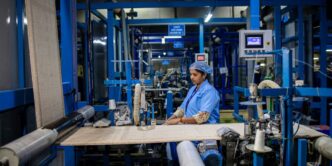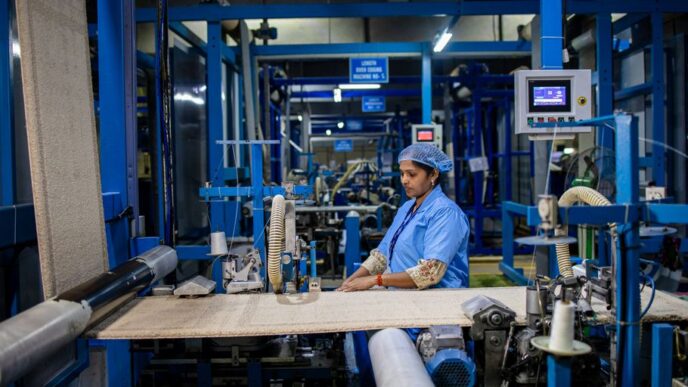The music industry is being transformed by the power of artificial intelligence (AI) through a groundbreaking technology known as neuroforecasting. This innovative approach utilizes AI to predict the songs that will resonate with listeners, revolutionizing how new artists are discovered and favorite tunes are enjoyed. In this article, we will delve into the impact of AI on the music industry, specifically through neuroforecasting, and explore its implications for the future of music. Get ready to embark on a melodic journey!
Introduction to Neuroforecasting
Neuroforecasting is an emerging field leveraging AI to predict future trends in the music industry. By analyzing historical data, neuroforecasters can identify patterns and make accurate predictions about forthcoming music trends. This valuable information empowers record labels to sign promising new artists, release impactful songs, and effectively target the right audience for their music.
Although still in its early stages, neuroforecasting has already demonstrated its predictive capabilities. It successfully forecasted the rise of Electronic Dance Music (EDM) in the United States before it reached mainstream popularity. As this technology continues to advance, neuroforecasting will undoubtedly become more precise and reliable, transforming the way the music industry operates.
How AI is Revolutionizing the Music Industry
AI is already driving a revolution in the music industry, with new applications emerging daily in composition, performance, and analysis. AI is currently employed to create entire albums of original music, identify potential hits, and aid musicians and producers in refining their recordings.
Looking ahead, AI’s significance in the music industry will only increase. It will enable personalized music recommendations, facilitate the creation of virtual instruments, and potentially compose entire songs autonomously. With such immense potential, the true extent of AI’s capabilities in the music industry is only beginning to unfold.
Applications in Transportation, Education, and Public Policy
Neuroforecasting, an innovative predictive analytics tool employing AI, extends beyond the music industry. It has found successful applications in diverse sectors such as transportation, education, and public policy.
In the transportation industry, neuroforecasting enables accurate traffic pattern predictions and route optimization, reducing congestion and saving time and money. In education, it identifies at-risk students, allowing for timely interventions to improve outcomes. Furthermore, in the realm of public policy, neuroforecasting can predict social trends, providing valuable insights for policymakers to make informed decisions.
The potential applications of neuroforecasting are limitless. As more companies adopt this technology, we can anticipate even more innovative uses in the coming years.
Emerging Trends in Neuroforecasting
Neuroforecasting, which combines neuroscience and AI, offers exciting prospects for predicting the future. The music industry, among various other industries, is embracing neuroforecasting to make informed decisions about music production and marketing strategies.
Several emerging trends within neuroforecasting are reshaping the music industry. One such trend involves employing EEG (electroencephalography) to measure brain activity, providing more accurate predictions about the music that resonates with listeners.
Another trend utilizes fMRI (functional magnetic resonance imaging) to map the brain’s activated regions while listening to different genres, enabling the creation of customized music that engages listeners on a profound emotional level.
Machine learning is increasingly employed to enhance the accuracy of neuroforecasting predictions. This rapidly evolving technology promises greater sophistication, expanding the potential applications of neuroforecasting in the future.
Benefits of AI in the Music Industry
AI offers music industry professionals enhanced efficiency and accuracy. For instance, Gracenote’s MusicID can accurately identify songs based on audio fingerprints with up to 99.9% accuracy. Radio stations and streaming services can automatically catalog and identify new songs without human intervention.
Additionally, AI enables personalized music recommendations based on users’ listening habits. Services like Spotify utilize a mix of AI and
human curation to create personalized playlists, with one in five users currently enjoying the algorithmically-created Discover Weekly playlists.
AI can also generate new music compositions. Google’s Magenta project employs machine learning to create original artwork and music. In the future, AI may even compose entire songs or introduce new music genres.
Challenges Associated With AI and Neuroforecasting
While AI and neuroforecasting revolutionize the music industry, challenges accompany these technologies.
Firstly, AI and neuroforecasting are still in early stages of development, necessitating ongoing refinement. Occasionally, the predictions made by these systems can be inaccurate. Furthermore, the rapid evolution of these technologies makes it challenging for music industry professionals to stay abreast of the latest advancements.
Moreover, AI and neuroforecasting technologies can be expensive, requiring costly hardware and software investments. This cost can prove prohibitive for small businesses and independent artists. Additionally, training staff to effectively utilize these technologies incurs further expenses.
Ethical concerns arise with the use of AI and neuroforecasting. Some worry that AI could manipulate people’s emotions through music, raising questions about the responsible use of this technology. Furthermore, concerns exist regarding how AI and neuroforecasting could potentially enhance targeted advertising and marketing strategies.
Conclusion
AI and machine learning exert a profound influence on the music industry, particularly through neuroforecasting. By enabling informed decision-making, neuroforecasting empowers musicians, record labels, and consumers alike. It improves the chances of creating successful music while allowing for creativity and innovation within the industry.
As AI continues to advance, its impact on the music industry will intensify. Neuroforecasting pioneers a new era of music discovery and consumption, revolutionizing the industry while preserving its intrinsic artistry and imaginative spirit.













